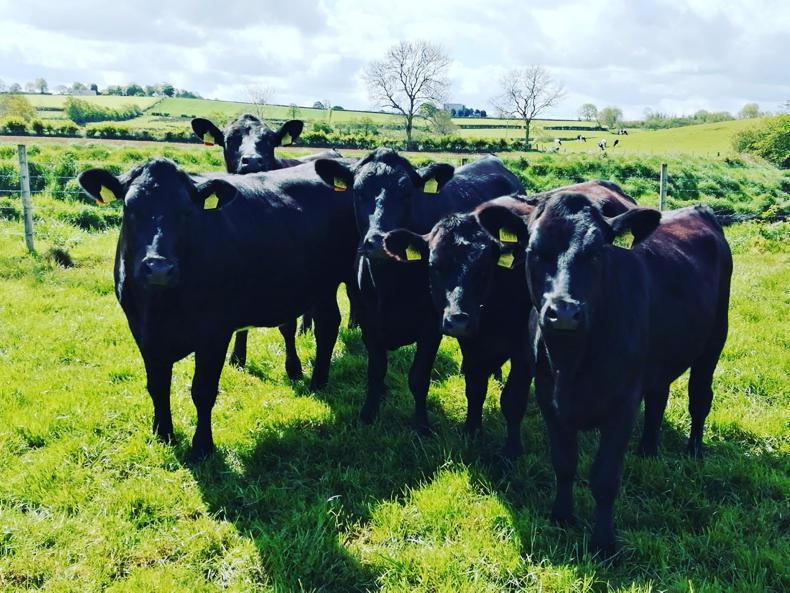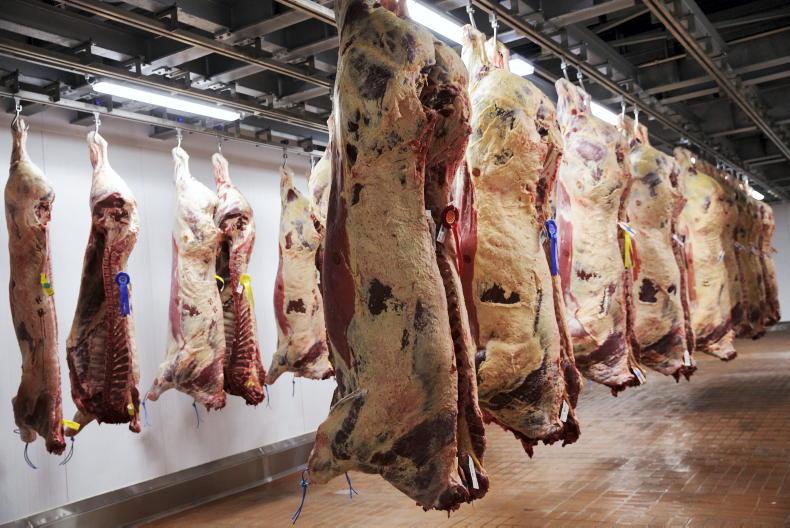Despite obtaining the lowest risk status possible for BSE in 2017, and having its own separate veterinary inspection system, NI has been included in a UK-wide ban imposed by China and the Philippines on the back of a BSE case in England discovered last month.
Found on a dairy farm in Somerset on 17 September 2021, the infected animal is a “classical” case of the disease, meaning that it is similar to cases from the late 1980s which were linked to contaminated animal feed.
The other form of BSE is “atypical”, and occurs spontaneously in older cattle.
Given the checks and controls now in place since the original BSE outbreak in the UK, there is no risk to public safety, and England, Scotland and Wales all remain on a controlled risk status for BSE as defined by the World Organisation for Animal Health (OIE).
However, NI obtained negligible risk status from the OIE in 2017, and hasn’t found a case of BSE in an animal since 2012.
The response from both Chinese and Filipino authorities to the recent case in England is to re-impose a ban on all UK beef imports.
In the case of China, it only agreed to lift a 20-year ban on UK beef in 2018, although no product from the UK has actually made it directly into the Chinese market since then.
The decision by Chinese authorities is also consistent with the policy towards both Brazil and the Republic of Ireland, who have both had to suspend exports following the discovery of atypical cases of BSE.
Ireland has now been excluded from the Chinese market since May 2020, while Brazil was forced to suspend exports on 4 September 2021, and is anxiously awaiting approval to recommence.
Philippines
The ban imposed by Filipino authorities is more significant to NI factories than the Chinese announcement, as local processors have been doing business there.
Across the UK, HMRC data shows exports of just under 3,500t to the Philippines in 2020, rising to 3,900t in the first seven months of 2021. Most of this was lower value frozen boneless beef.
Reacting to the ban, NI Meat Exporters’ Association (NIMEA) chief executive Conall Donnelly said that DAERA officials need to push for regionalisation clauses in deals, so that NI is not caught in a similar situation again.
“What’s the point of having negligible risk status when things like this happen? We should be treated differently, and we all need to be pushing hard on this,” he said.
His Scottish counterpart Martin Morgan described the bans as having “no scientific basis” and maintained they were “totally disproportionate”.
Read more
Northern Ireland applies for BSE Negligible Risk status
Closing the BSE chapter
Despite obtaining the lowest risk status possible for BSE in 2017, and having its own separate veterinary inspection system, NI has been included in a UK-wide ban imposed by China and the Philippines on the back of a BSE case in England discovered last month.
Found on a dairy farm in Somerset on 17 September 2021, the infected animal is a “classical” case of the disease, meaning that it is similar to cases from the late 1980s which were linked to contaminated animal feed.
The other form of BSE is “atypical”, and occurs spontaneously in older cattle.
Given the checks and controls now in place since the original BSE outbreak in the UK, there is no risk to public safety, and England, Scotland and Wales all remain on a controlled risk status for BSE as defined by the World Organisation for Animal Health (OIE).
However, NI obtained negligible risk status from the OIE in 2017, and hasn’t found a case of BSE in an animal since 2012.
The response from both Chinese and Filipino authorities to the recent case in England is to re-impose a ban on all UK beef imports.
In the case of China, it only agreed to lift a 20-year ban on UK beef in 2018, although no product from the UK has actually made it directly into the Chinese market since then.
The decision by Chinese authorities is also consistent with the policy towards both Brazil and the Republic of Ireland, who have both had to suspend exports following the discovery of atypical cases of BSE.
Ireland has now been excluded from the Chinese market since May 2020, while Brazil was forced to suspend exports on 4 September 2021, and is anxiously awaiting approval to recommence.
Philippines
The ban imposed by Filipino authorities is more significant to NI factories than the Chinese announcement, as local processors have been doing business there.
Across the UK, HMRC data shows exports of just under 3,500t to the Philippines in 2020, rising to 3,900t in the first seven months of 2021. Most of this was lower value frozen boneless beef.
Reacting to the ban, NI Meat Exporters’ Association (NIMEA) chief executive Conall Donnelly said that DAERA officials need to push for regionalisation clauses in deals, so that NI is not caught in a similar situation again.
“What’s the point of having negligible risk status when things like this happen? We should be treated differently, and we all need to be pushing hard on this,” he said.
His Scottish counterpart Martin Morgan described the bans as having “no scientific basis” and maintained they were “totally disproportionate”.
Read more
Northern Ireland applies for BSE Negligible Risk status
Closing the BSE chapter









SHARING OPTIONS